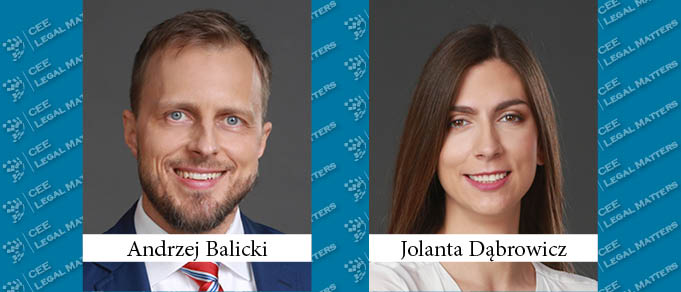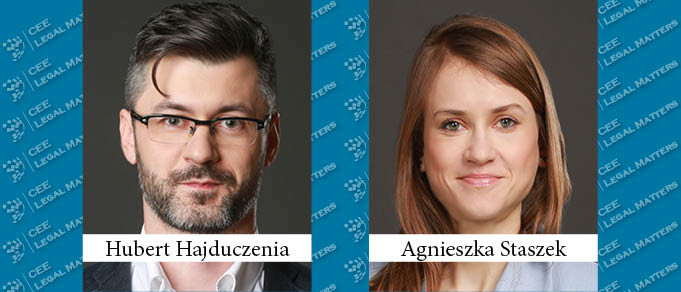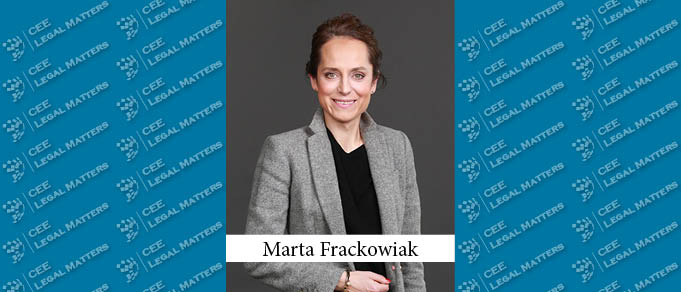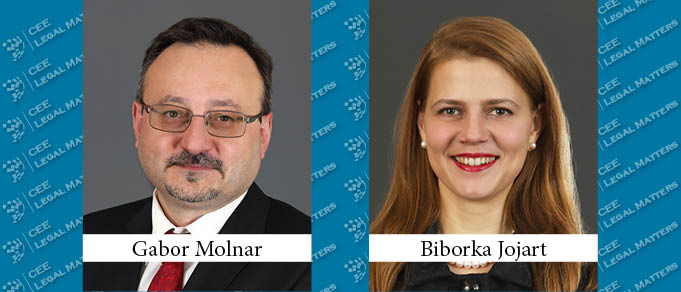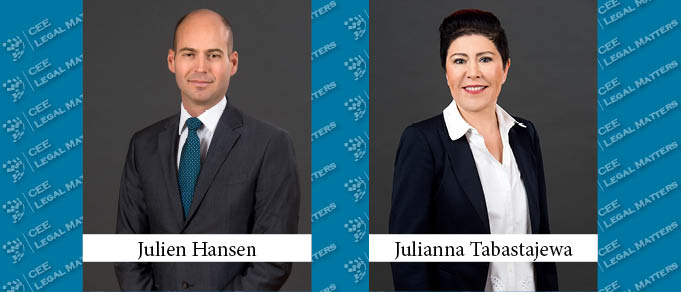The DLA Piper report “The COVID-19 pandemic and the pharmaceutical and medical sector in Poland” is based on the feedback from a survey conducted among DLA Piper’s clients and business contacts from the pharmaceutical and medical sector, including producers of medicines, food supplements and medical devices, as well as healthcare service providers. It is the first report that brings together the views of key players in the pharmaceutical and medical industries, describing how they see the current state of affairs on the Polish market and possible future trends, along with their recommendations as to what actions they would like to see taken in the sector. The key findings are summarised in our four briefings, the third of which focuses on patients’ rights, the product market and an evaluation of the state’s actions during the pandemic.
COVID-19 and the Pharmaceutical and Medical Sector in Poland, Part 2: Reimbursement and Organisation of the Healthcare System
The DLA Piper report “The COVID-19 pandemic and the pharmaceutical and medical sector in Poland” is based on the feedback from a survey conducted among DLA Piper’s clients and business contacts from the pharmaceutical and medical sector, including producers of medicines, food supplements and medical devices, as well as healthcare service providers. It is the first report that brings together the views of key players in the pharmaceutical and medical industries, describing how they see the current state of affairs on the Polish market and possible future trends, along with their recommendations as to what actions they would like to see taken in the sector. The key findings are summarised in our four briefings, the second of which concentrates on the impact of the pandemic on reimbursement and on the organisation of the healthcare system.
COVID-19 and the Pharmaceutical and Medical Sector in Poland, Part 1: Impact, Relations with Healthcare Professionals, and Clinical Trials
The DLA Piper report “The COVID-19 pandemic and the pharmaceutical and medical sector in Poland” is based on the feedback from a survey conducted among DLA Piper’s clients and business contacts from the pharmaceutical and medical sector, including producers of medicines, food supplements and medical devices, as well as healthcare service providers. It is the first report that brings together the views of key players in the pharmaceutical and medical industries, describing how they see the current state of affairs on the Polish market and possible future trends, along with their recommendations as to what actions they would like to see taken in the sector. The key findings are summarised in our four briefings, the first of which focuses on the overall impact of the pandemic as well as relations with healthcare professionals and clinical trials.
Deal Expanded: Interview with DLA Piper on 2020 DOTY for Hungary
DLA Piper’s Andras Nemescsoi and Gabor Molnar Talk About The Deal of the Year in Hungary.
A New Layer of Protection for Consumers?
Once the amendment to the Czech Consumer Protection Act becomes effective, consumer protection rules shall have to start being reflected in the digital world. If the amending legislation is passed in its current draft form, consumer protection rules shall also apply to the offering and provision of digital content and services, even if the consumers "pays" for them with their personal data. Violations of the new obligations shall be punishable by a fine of up to CZK 50.000.000 or 4% of the trader’s annual turnover. The amendment implements the requirements set by EU law.
New VIAC Arbitration and Mediation Rules Entered into Force
In July, new Arbitration and Mediation Rules of the Vienna International Arbitration Centre ("VIAC" and "VIAC Rules") entered into force. The revised VIAC Rules will apply to arbitrations commenced after 30 June 2021.
UOKiK Announces Precedential Antimonopoly Proceedings in Poland
Recently, the President of the Office of Competition and Consumer Protection (Polish name: Urząd Ochrony Konkurencji i Konsumentów “UOKiK”) announced the initiation of antimonopoly proceedings in connection with the suspected coordination of actions by the Polish Basketball League and its member clubs against their players. The aim of the collusion was, among other things, to agree the terms of termination of players' contracts and to withhold payment of their salaries.
Marta Frackowiak Appointed to DLA Piper's International Board
DLA Piper Warsaw Head of Corporate/M&A Marta Frackowiak has been elected as representative of the EMEA region the firm’s International Board - the body that acts as the firm's supervisory board.
Hungary: M&A Trends on CEE Markets in 2020 – Impact of COVID-19
Every spring DLA Piper publishes its annual M&A intelligence report. This past spring, we could only speculate on the effects of the pandemic as COVID-19 had just hit Europe. Informed by our experience of the past few months, we have recently published our updated M&A Global Report. Below we highlight a couple of trends that are impacting CEE.
The New Foreign Direct Investment Screening Regime Under Austrian and Slovenian Law
After many years of liberalization and globalization, recent years have shown a reversal of the European Union’s approach concerning foreign direct investment from third countries. As in much of the world, the EU has taken a more restrictive view than in the past, and this view is reflected on the legislative level with the FDI Screening Regulation.
Expat On The Market: Julien Hansen of DLA Piper Moscow
An interview with Julien Hansen of DLA Piper Moscow.
ILFS in CEE: What’s the Deal
The legal markets of Central and Eastern Europe are served by a growing cadre of strong domestic firms, an established collective of widely-recognized and genuinely impressive regional firms … and, of course, many of the largest and best international firms in the world.
The Role of Private Equity and Venture Capital in the Post-COVID-19 World
Something Needs to Be Done
When the World Stops…and Everyone Looks for the Miraculous Reboot Kit
The Spring of 2020 was about to blossom when the world got trapped in a global shutdown as a result of the COVID-19 pandemic. The private sector tried to adapt by activating continuity plans. Working from home and interacting online with colleagues and customers has become the new paradigm for service businesses. In addition to a wide range of social distancing restrictions designed to contain the virus (including closing down or significantly limiting public access to many commercial, government, and leisure facilities), Romanian authorities have instituted various specific temporary relief measures, such as unemployment benefits; moratoria on consumer and corporate debt, business rent, and utilities expenses; state aid schemes representing loan and guarantee facilities for small and medium-size enterprises (SMEs); guarantees for mortgage loans; filing deferral for tax returns and rescheduling of income and property tax; and waivers of mandatory insolvency filing and extension of certain stages in pending insolvency cases.
Changes to the Commercial Code in 2020
On October 22, 2019, the Slovak parliament adopted Act No. 390/2019 Coll. (the “Amendment”), which significantly amends the Slovak Commercial Code as well as some other acts. Most of the Amendment’s provisions will come into effect on October 1, 2020.
Guest Editorial: M&A Market in Slovakia Following COVID-19
When I was asked some time age to write an editorial for CEE Legal Matters on the Slovak legal market I thought it would be a nice opportunity to review my last 20 years, approaching the end of another very successful financial year.
Russia: Compulsory Licenses for Patent Rights to Pharmaceuticals in Russia
The issue of compulsory licenses for patent rights to pharmaceuticals is becoming more and more controversial in Russia, due to the growing number of important court rulings involving compulsory licenses affecting leaders of the pharma industry over the last few years.
Expat on the Market: Ivan Males of DLA Piper
Ivan Males, from Croatia, is Senior Associate with DLA Piper in Vienna. He is a Finance, Projects & Restructuring practitioner with a focus on financing transactions and the infrastructure sector. In addition, he has gained particular knowledge on corporate and M&A cross-border transactions, notably in CEE and SEE markets.

